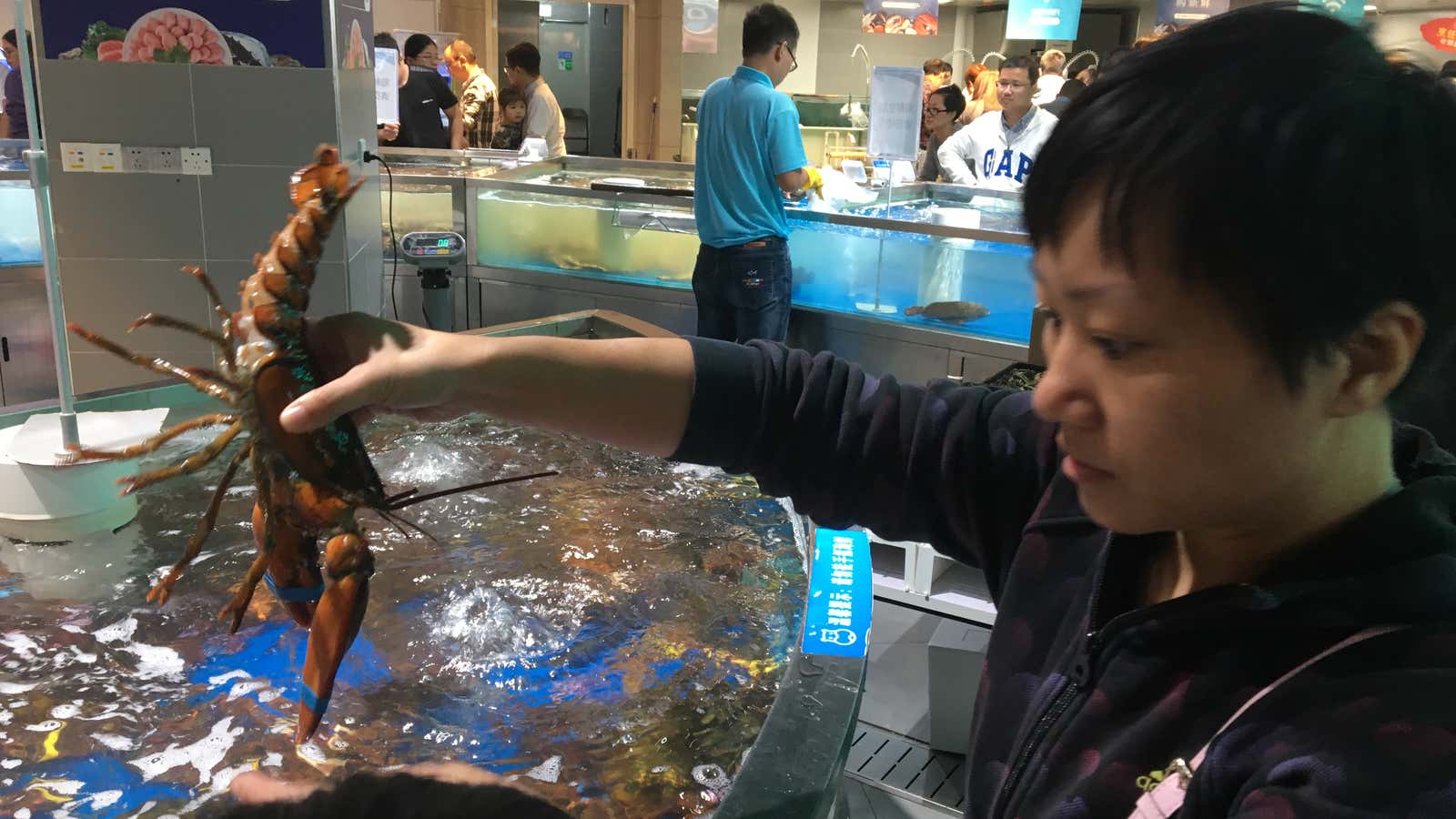The conventional narrative when it comes to e-commerce Goliaths is they’ll wipe brick-and-mortar retailers clean off the face of the Earth. Which is why it may seem odd that Alibaba has charged into brick-and-mortar retail.
The company is supporting a push for what it calls “new retail” by digitizing and merging traditional department stores with online platforms. This has included the $2.6 billion acquisition of the Intime department store chain, with 62 locations in 33 cities in China, and the opening of around 100 of its own, cashier-less Hema supermarkets.
At Hema (also called Freshippo), users can shop by scanning QR codes with their phones and either pick up their purchases while they’re in the store, or have groceries, clothes, or other items delivered in 30 minutes or less within a 1.8 mile radius from the store. As Amazon is experimenting with its Whole Foods locations, Alibaba’s Hema stores function as distribution points for the company’s online shopping platforms as much as they do retail outlets. Around 100 RT-Mart hypermarket stores in China have also acquired the new retail technology Alibaba uses at Hema. (Alibaba acquired a 36 percent stake in RT-Mart’s parent company Sun Art Retail Group in November of 2017.)
On the day I visit Alibaba’s Shenzhen flagship store for Hema, store workers equal or outnumber the number of shoppers. When delivery personnel get a mobile order, they take a scanner and an insulated shopping bag and fetch items, scanning centrally controlled price tags that change automatically as prices fluctuate. Once the bag is full, employees hook it to a conveyor belt that hoists the bag up and through the store, soaring above the shoppers as it moves toward the delivery center where it is rushed out the door.
With all the data collected from its many shoppers, Hema can decide how many bags of store-branded fresh veggies to supply a location with each day, minimizing the amount that needs to be thrown out. Same with all of the fresh seafood—lobster from New Brunswick, salmon from Norway, raw oysters from France—shipped to a location within 72 hours of a catch and only available fresh for about 24 hours. If a certain lobster catches your eye, you can have it cooked in the store and delivered to you at a time of your choosing (if you’re within the delivery area) or you can take it home yourself.
If you do check out yourself, there’s a catch: You can only pay with Alibaba’s payment app Alipay or cold, hard, increasingly unpopular cash. You can’t pay with rival Tencent’s WeChat wallet. This is a bit like Visa or Mastercard owning a store and only allowing you to pay with its card or forcing you to use cash. A manager at the store explained it this way: “Tencent-backed stores don’t take Alipay payments, why should we allow Wechat payments?”
